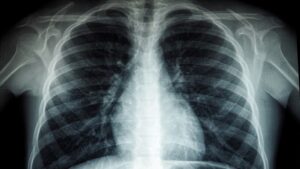[ad_1]
WHAT IS Sputum?
The mucous substance produced in the lower respiratory tract is called sputum. However, this is not saliva, but mucus produced entirely in the lungs. It can be in different colors, including clear, yellow, green and white sputum. However, bloody sputum can also be seen in serious lung diseases. The type of mucus varies according to the underlying disease.
The mucus produced in the lungs can usually be coughed out. The secretions from the stomach, nasal discharge and sinus discharge are not seen as sputum. However, if these secretions are secreted at high levels, they can have an obstructive effect on the respiratory tract.
SYMPTOMS OF Sputum Accumulation in the LUNG
Mucus consists of secretions secreted from cells lining the respiratory tract, cigarettes and harmful substances in the air (such as tar), white blood cells and other immune cells. When large amounts of mucus accumulate in the lungs, it is possible to see the following symptoms:
– Cough with phlegm,
– wheezing,
– Foamy sputum,
– Feeling of phlegm in the throat when swallowing,
– Throat irritation caused by coughing,
– chest pain,
– Shortness of breath.
HOW IS Sputum Dumped?
In cases requiring medical treatment, expectorant drugs are usually given. These are mostly drugs in liquid form. In addition, consuming plenty of water, steam bath, drinking warm beverages and keeping the inhaled air moist provide great benefits to expel phlegm.
HOW IS Sputum Excreted NATURALLY? HOW TO REMOVE Sputum WITHOUT MEDICATION?
Taking into account the recommendations that can be applied at home listed below may help to expel sputum more easily.
– keeping the air moist
Dry air irritates the nose and throat, causing more phlegm to form. Keeping the air in the house moist provides a better quality sleep, keeps the nose clean and helps prevent sore throat.
– Drinking plenty of fluids
Drinking plenty of fluids can help the hardened sputum to be softened and expelled more easily.
– Avoiding cigarettes and cigarette smoke
Smoking and/or exposure to secondhand smoke causes the body to produce more phlegm and mucus.
– Keeping allergies under control
Seasonal allergies can cause runny or stuffy nose and post-nasal drip, as well as excessive phlegm production.
– Keep a record of food reactions
Some foods can cause a similar reaction to seasonal allergies, causing a runny nose and an itchy throat, causing excess mucus. The foods that trigger sputum increase should be noted and their consumption should be reduced.
– Take a hot shower
Time spent in a steamy bath will help loosen and clear mucus from the nose and throat.
– Ginger consumption
Ginger can be used as a natural decongestant and antihistamine. The antiviral and antibacterial properties of ginger can help relieve chest congestion by drying up excess mucus and promoting the removal of its buildup. Drinking ginger tea several times a day can help reduce phlegm.
Follow NTV on social media
[ad_2]
Source link






